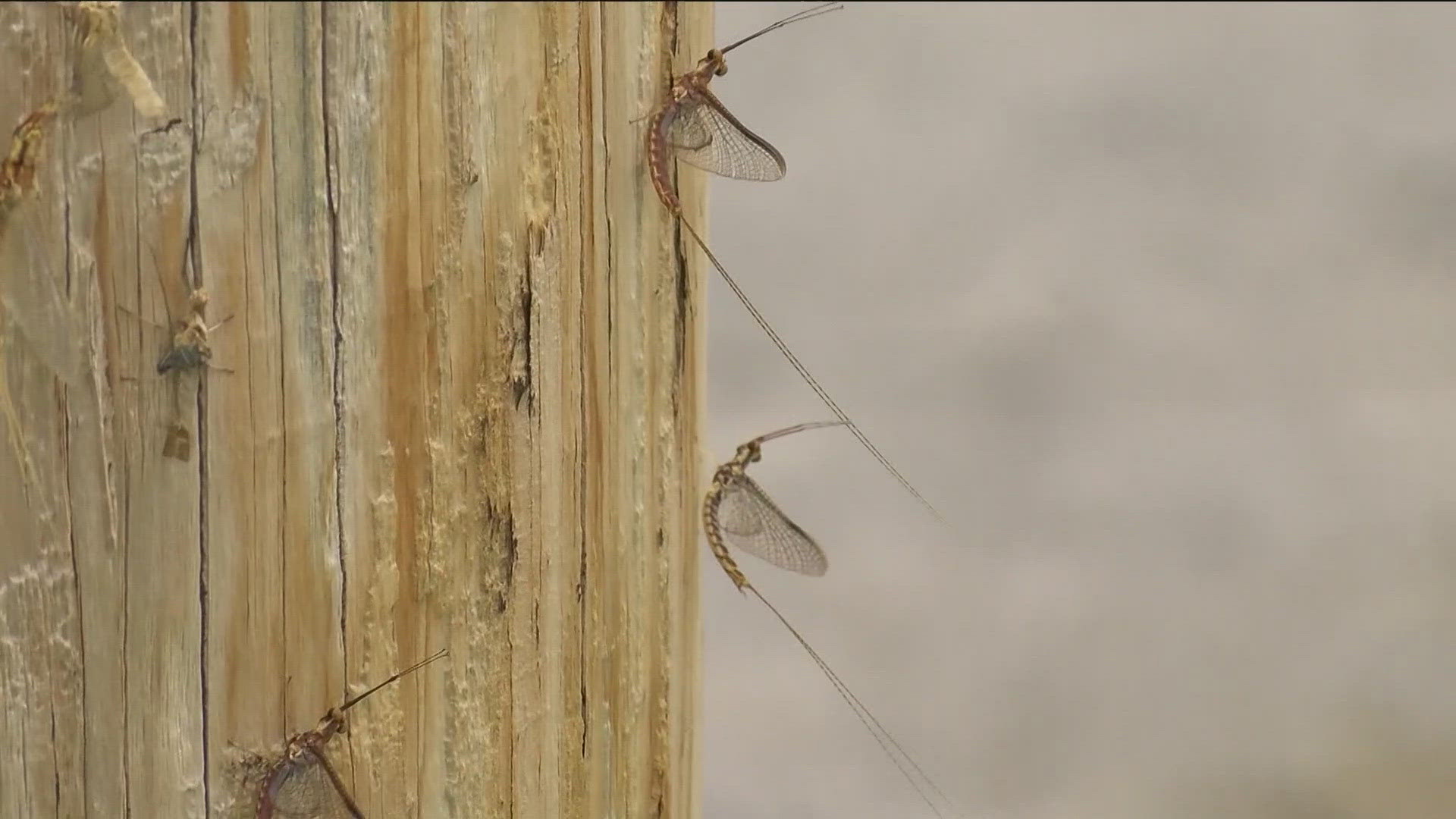OREGON, Ohio — This month, mayflies are still buzzing around the lakeshore of Lake Erie sticking to whatever they can find.
The insects are known for their short lifespans and massive swarms. But are those swarms getting bigger and bigger every year?
It can be difficult to track the growth of swarms year over year due to the infinite amount of mayflies that hatch annually, according to the University of Toledo's Lake Erie Center.
Mayflies have always been an important part of the food web when it comes to Lake Erie's ecosystem, but is the recent warm climate impacting how many mayflies hatch?
The Lake Erie Center has conducted a study showing the peak time of mayflies has decreased since coming back in the 1990s.
"There is a study it’s now about four years old suggesting that mayflies in Lake Erie might’ve peaked about 20 years ago and are now slowly starting to decline and that might be that they were they were overpopulated 20 years ago and now they’re getting back to more sustainable level," said Thomas Bridgeman, director of the Lake Erie Center.
"From the 1950s to the early 1990s, there were almost no mayflies in Lake Erie because of pollution and then the mayflies came back in the 1990s," he added. "When they came back, they came back gangbusters and they may have even overpopulated the lake in the late 1990s to 2000, so that peak about 20 years ago might’ve been an overpopulation and now they’re starting to get back to the normal level."
This past winter was one of the warmest on record and it was followed by a warmer-than-normal spring, causing mayflies to hatch earlier than normal.
"As we get warmer springs, that might cause the hatch to occur earlier as we saw this year western Lake Erie warmed up significantly faster than it did in most years so we saw the mayfly hatch probably a week or two earlier than we normally do," Bridgeman said.
Bridgeman also offered a reminder: mayflies are harmless, good for fish and birds and act as a protective food supply to the fish and wildlife on Lake Erie.

